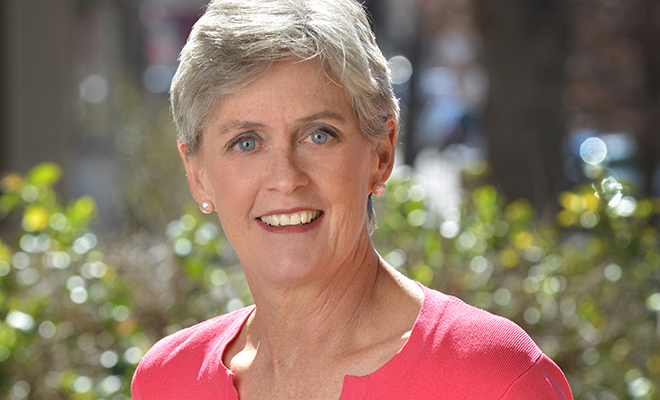 Lightbox Images
Lightbox Images
Jeannie Ritter: Taking The Conversation About Mental Well-Being To New Audiences
Imagine if, upon learning you were diagnosed with cancer or a life-threatening illness, someone told you that you needed to “just get over it” or simply “try harder” to get better. Never in a million years would you consider ever saying that to someone. Yet with mental health issues, that is unfortunately the type of response many people offer, perhaps not as direct, but with similar intent.
Mental health challenges are often misunderstood, and people frequently don’t know how to support friends or neighbors in a mental health crisis. Individuals with a mental health issue often isolate themselves, not understanding how common and treatable many mental illnesses are. However, one Colorado woman is part of a robust and growing effort to change how mental illness is viewed and accepted.
Meet Jeannie Ritter. First impressions provide a welcoming, approachable and undeniably down-to-earth presence. Relatable, kind and even somewhat self-effacing, she is more girl next door than the high-profile celebrity that came with being a First Lady, as she is the wife of former Governor of Colorado Bill Ritter, who served from 2007 to 2011. There is nothing about this unpretentious and compassionate woman that would ever suggest she puts herself first, however. In fact, she probably has the biggest welcome mat in the state right outside her front door.
A dedicated citizen and team player in the world, Jeannie supports a community-based mindset, realizing we are all in this together. Growing up with a dad who served in the U.S. Navy, she had the opportunity “to live in some extraordinary places” before eventually settling in Colorado when she was a teenager. After completing high school, where she met Bill, Jeannie became the first member of her family to attend college. She initially began her academic career at Western State University with aspirations to become a special education teacher. She later transferred to the University of Northern Colorado, from which she earned a teaching degree with a major in special education. She also holds certifications in vocational education.
What initially drew her attention to the education arena, most notably in the special education sector, was a law that had been passed at that time mandating children with special needs should be in the least restrictive environment possible, thereby moving them to a typical classroom setting.
“This was a big shift in thinking at the time,” noted Jeannie, emphasizing the push to integrate these students into the mainstream setting. “Much like we are doing with mental health and well-being now, we were bringing that issue to the forefront. Part of a person’s recovery involves creating strengths so they feel a sense of belonging to the community.”
It was this idea that captivated Jeannie, and through her efforts within the mental health arena, she has become a devout advocate for mental health issues, spanning the spectrum from infants to the chronically homeless.
Jeannie has no shame reflex in admitting that during her term as First Lady she was not always comfortable with the public speaking side of the role. However, once she identified her passion and her cause, her platform broadened and she began speaking to groups all over the state. She addressed a cornucopia of diverse groups, from veterans to the aging population to post-partum support groups and those struggling with traumatic brain injuries. Initially inspired by her sister’s diagnosis with bipolar disorder, Jeannie’s focus has shifted in the past few years, recognizing that essentially all roads lead to mental health. She emphasizes that the mental health arena spans so many areas and touches so many lives, that ultimately we are all affected by it.
“Look at anyone’s family picture and then put a bubble over anyone’s head,” she illustrated. “There is at least one mental health issue affecting everyone somehow, and we have to become more comfortable with talking about it and making those individuals who live with it feel included.”
In other words, Jeannie reinforces that the mental health dialogue has to shift from the question of “What’s wrong with you” to “What happened to you?” It’s not about pointing fingers; it’s about opening minds and hearts. “Mental health issues are very real and intersect all lives at some point in some manner,” said Jeannie. “And the real work is recognizing that and putting a voice to it and a community behind it. The purpose of my work now is to align a community behind this idea.”
Her efforts have been on full throttle ever since she embraced this calling. She is now carrying on the work she began as First Lady by working as the Mental Health Ambassador for the Mental Health Center of Denver, an organization nearly 700 strong that provides services to the community across the continuum. “My role is to connect government agencies, private companies and non-profits and help them work together to provide better outcomes to advance mental health access and information.”
Jeannie realizes that she is not doing her job if she is the only one being recognized. For her, the real victory comes in shining the light on those who are driving extraordinary measures and using their business to deliver messages to normalize mental health. Lots of people are enlisted in this effort, including Joe Conrad, owner of Cactus, a leading advertising agency in Denver, who is being honored at a gala this spring by Project Helping, an organization that “uses the joy of purpose created by volunteering to improve mental wellness,” for his company’s work in mental health. According to Jeannie, Joe’s company has been an integral part of shedding increased light on mental health issues and bringing the conversation to new audiences.
Away from her community work, Jeannie enjoys any time she can spend with Bill and their four adult children, Abe, Sam, August and Tally. Sincere shepherds of their home, Jeannie and Bill make sure the front door is a revolving door of fun and fellowship. Her house is truly a home and even though she confesses to being “a failure at housekeeping,” she does love to exercise her culinary skills in the kitchen, a form of relaxation for her. “If there is laundry or paperwork to be done, I somehow manage to go straight to the kitchen instead,” she laughed. “I am starting to make a really good curry now.”
Other areas of interest include regular early morning walks, riding her bicycle on Sunday mornings, socializing with college friends, and enjoying adventures in travel with Bill, referring to their fishing cabin in South Park as well as another favorite destination, Salida. “There is something for everyone in Colorado,” Jeannie reflected.
And thanks to her work within the mental health arena, no statement has been so genuine. She will be the first to admit that the surface has just been scratched, but with each step forward, the word community takes on an even brighter and more positive meaning.
“I am being richly rewarded every day as I see more groups moving in this direction,” smiled Jeannie. “There is still work to do and opportunities to improve to have support in place for all aspects of the community with the idea that the stigma surrounding mental illness will be taken care of in an organic way.” HLM
For more information on Jeannie and the Mental Health Center of Denver, go online at mhcd.org








